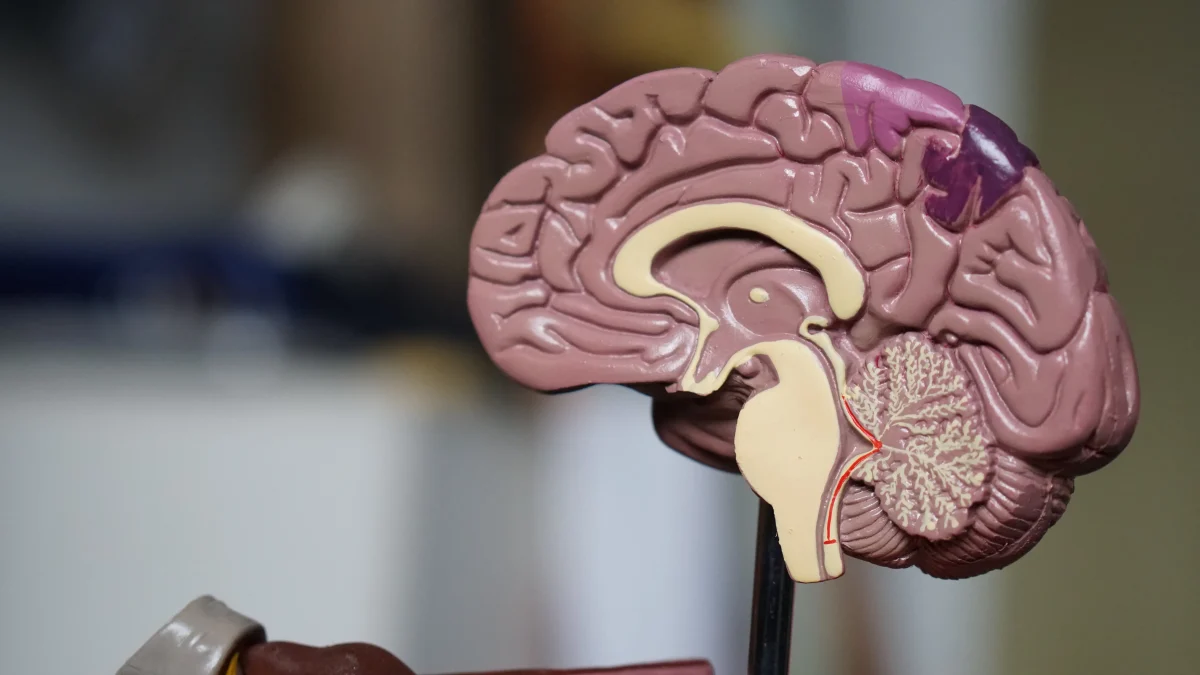
Concerned About Addiction?
Table of Contents
What is Addiction?
Addiction is a complex condition that affects many individuals worldwide. We have all heard of it, yet many of us lack a deep understanding of what addiction is, its symptoms, causes and treatment options.
Addiction is defined by the compulsive need for a behaviour, substance or activity despite the harmful physical, psychological or social effects it may bring. It can happen to anybody and is a recognised medical condition. Addiction affects your brain circuits, making it difficult to control your substance misuse or behaviours.1
One of the most challenging aspects of addiction is its potential for relapse. Even after a period of abstinence, the risk of returning to substance use or habit-forming behaviours remains high due to the chronic nature of the disorder. However, individuals can and do recover from addictive disorders, and there are a range of evidence-based treatments available.2
Here, we will review the symptoms, associated risk factors and available treatments for managing addiction. This information aims to provide you with the information you need to help yourself or others overcome addictive behaviours.
If you have been struggling with addiction, or you’re concerned about someone you know, call CATCH Recovery today. Our team can offer support and guidance on treatment options based on your needs, whether you require outpatient therapy or referral to inpatient rehab.
Understanding Addiction
Addiction is not a personality flaw or moral failing. It does not stem from a lack of willpower or a series of bad choices. It is a medical condition that can affect anyone and just like many other illnesses, addiction produces a range of clinical symptoms. There is no shame in suffering from addiction any more than there is for any other illness.3
The term, alcohol use disorder (AUD), represents a spectrum of conditions characterised by a compulsion to consume alcohol, even when it causes negative consequences. Alcohol addiction is on the moderate to severe end of the AUD spectrum.2
If you struggle with addiction, you are not alone. The Diagnostic and Statistical Manual of Mental Disorders (DSM-5) recognises substance use disorder (SUD) as a medical condition featuring dependence on a wide range of substances, including alcohol, tobacco and opioids. These substances activate reward centres in the brain, bringing about feelings of pleasure and fuelling addictive behaviours. A SUD can be classified as mild, moderate or severe depending on the number of symptoms an individual experiences.4 Addictive disorders can affect anyone, irrespective of age, gender, socioeconomic status or cultural background. However, a complex interplay of genetic and environmental factors can predispose certain individuals to addiction3, as we will see in a later section.
To identify addictive disorders, we need to pay attention to the signs of physical dependence, uncontrolled use and behavioural changes. Many people suffering from addiction also face feelings of guilt, shame, hopelessness and despair5. It is important to remember that addiction is not your fault and that it can be treated and managed successfully with the right help and support.
Understanding what addiction is is the first step towards addressing this condition. By taking the time to learn more, you are already on the right path.

What Are the Types of Addiction?
Addiction can manifest in various forms involving different substances or behaviours. In all forms of addiction, similar patterns can be identified such as difficulties in cutting down, development of tolerance and experience of withdrawal symptoms.
All types of addiction can lead to serious health problems, legal issues and social difficulties. The development of addiction is influenced by various factors including genetic predisposition, adverse childhood experiences and co-occurring mental health conditions.6 Understanding the different types of addiction and their impact is necessary to develop effective treatment plans.
By recognising and addressing these diverse forms of addiction, individuals and their family members can work with health professionals to create comprehensive and effective treatment plans.
-
Substance Addictions
Substance addiction, or substance use disorder (SUD), refers to the misuse of substances such as alcohol, tobacco, prescription medications and legal and illegal drugs. This type of addiction can lead to physical dependence, where withdrawal symptoms become apparent when the substance is reduced or withdrawn. Examples of SUD include drug addiction, where individuals may misuse drugs like opioids, stimulants or illicit drugs, and alcohol addiction, characterised by compulsive alcohol consumption.4
-
Behavioural Addictions
Behavioural addictions involve compulsive engagement in specific activities despite harmful consequences. These activities can include gambling, work, exercise, internet use and overeating. Unlike substance addictions, behavioural addictions may not produce obvious physical symptoms but can be equally damaging to mental health and overall well-being. For instance, pathological gambling is a recognised medical condition that affects the brain’s reward system, similar to substance use disorders.7
What Are the Symptoms of Addiction?
Recognising addiction is an essential first step in seeking help for yourself or a loved one. It’s not always easy, but there are some key signs to look out for:
-
Physical Dependence
Physical dependence is a hallmark of substance use disorders and can also apply to behavioural addictions. This includes withdrawal symptoms when the substance use stops or the behaviour is halted. Individuals may experience irritability, restlessness, shaking or sweating. Withdrawal symptoms are a clear indicator of physical dependence and signal the body’s reliance on the addictive substance or behaviour.6,8
-
Behavioural Changes
Addiction often triggers significant shifts in behaviour. You might notice someone neglecting their responsibilities at work, school or home. They may be preoccupied, lie to family or friends or engage in risky activities such as spending money excessively. Behavioural addictions, such as gambling or internet addiction, can lead to similar changes which can affect an individual’s social interactions and daily functioning.6
-
Uncontrolled Use
One of the most recognisable symptoms of addiction is the inability to stop using the substance or engaging in the behaviour despite being aware of the negative consequences. This compulsive behaviour is driven by changes in the brain’s reward system and often leads to legal problems, health issues and damaged relationships. Even when faced with severe adverse consequences, individuals with addiction struggle to avoid addictive behaviours.6,7
-
Mental and Physical Health Issues
Addiction often coexists with other mental health conditions including depression and anxiety. The interplay between addiction and these conditions can exacerbate an individual’s symptoms.5
Physical health can also deteriorate as a result of addictive behaviours. An individual who experiences physical dependence can suffer from withdrawal symptoms when a substance is reduced or removed. These symptoms are reflective of the detrimental effects of addiction on physical health and can include confusion, hallucinations and seizures.8 These severe symptoms represent a medical emergency; please call 999 immediately if you witness these symptoms.
-
Loss of Control
Addiction often leads to a loss of self-control, where individuals find themselves taking drugs, misusing alcohol or engaging in other addictive behaviours more frequently and in larger amounts than intended. This can start with initial drug use for recreational purposes but quickly escalate to addiction as the individual seeks the same effect repeatedly.1
If you or someone you know is exhibiting these signs, it’s important to reach out to a health professional who can provide a comprehensive assessment and devise a personalised treatment plan.

What Causes Addiction?
Addiction is a complex condition with links to various genetic, environmental and psychological factors.
Genetic factors can account for around half of an individual’s propensity for addiction. If addiction runs in your family, you may have a higher risk. However, this doesn’t make addiction an inevitability; it simply means that you need to be more cautious with substances that may lead to addiction, such as drugs or alcohol.3
On the other hand, your environment also influences the likelihood of developing addictive behaviours. For example, in drug addiction, environmental risk factors include exposure to drug use at an early age, peer pressure and local poverty. 1
Recognising and understanding these risk factors is essential for prevention and early intervention. Being proactive about your mental and physical health, seeking support from mental health professionals and building a strong support network can help mitigate these risks.
Remember, understanding risk factors is not about assigning blame or stigma; it’s about staying informed and prepared. The more you know, the better you can protect yourself and those you care about from the challenge of addiction.

Treatment for Addiction
When it comes to treating addiction, it’s important to remember that there’s no one-size-fits-all solution and the most effective treatment plans are those tailored to your unique needs and circumstances. Addressing both the physical and psychological aspects of addiction can help improve overall well-being and prevent relapse.
Your treatment plan may include the following:
- Medically-supervised detoxification
- Individual, group or family therapy
- Participation in support groups (in-person or online)
Working with a Mental Health Professional
Therapy is essential in developing a thorough treatment plan. They can help you explore the underlying issues that may be contributing to your addiction, equip you with skills to manage cravings and prescribe medication if necessary.
Therapies available to support individuals experiencing addiction include cognitive behavioural therapy (CBT) and motivational enhancement therapy (MET).
Support groups are also highly beneficial in maintaining recovery. They provide a platform to share experiences, learn from others who are also dealing with addiction and surround you with a community and a safe space where you can be heard and understood without judgment.4
Personalised Plans at CATCH Recovery
At CATCH Recovery, we know how important it is to work with our patients to develop treatment plans that work for them, considering their specific situations and needs.
Our treatment programmes are built for you and incorporate evidence-based therapies, including cognitive behavioural therapy (CBT), dialectical behaviour therapy (DBT) and eye movement desensitisation and reprocessing (EMDR). These therapies are designed to address underlying mental health conditions and promote lasting recovery.
Call us today for a free and confidential assessment. You can discuss your current situation and gain the knowledge you need to start your recovery journey.
-
References
- National Institute on Drug Abuse. Drugs, Brains, and Behavior: The Science of Addiction. [Accessed June 2024].
- National Institute on Alcohol Abuse and Alcoholism. Alcohol’s Effects on Health: Research-based information on drinking and its impact. [Accessed June 2024].
- Heilig M, et al. Addiction as a brain disease revised: why it still matters, and the need for consilience. Neuropsychopharmacology. 2021;46: 1715–23.
- Hartney E, Gans S. DSM 5 Criteria for Substance Use Disorders: How substance use disorders are diagnosed. [Accessed June 2024].
- Mental Health Foundation. Alcohol and mental health. [Accessed June 2024].
- Jazaeri SA, Habil MHB. Reviewing Two Types of Addiction − Pathological Gambling and Substance Use. Indian Journal of Psychological Medicine. 2012;34(1): 5–11. doi:10.4103/0253-7176.96147.
- Alavi SS, et al. Behavioural Addiction versus Substance Addiction: Correspondence of Psychiatric and Psychological Views. International Journal of Preventive Medicine. 2012;3(4): 290–4. PMID: 22624087; PMCID: PMC3354400.
- Buddy T. Understanding Withdrawal and Its Effects: The mental and physical experience of quitting a substance. [Accessed June 2024].
Frequently Asked Questions on Addiction
What are some common triggers that can set off addictive behaviour?
Triggers such as stress, anxiety, trauma, and environmental cues can set off addictive behaviour. These can lead to biochemical changes in the brain, influencing compulsive substance use despite negative consequences. Seek professional help for recovery.
How is substance use disorder classified according to the DSM-5?
According to the DSM-5, substance use disorder is classified as mild, moderate, or severe, replacing the previous distinction between substance misuse and dependence. A professional treatment plan is recommended for those exhibiting two or more symptoms.
Can physical dependence on a substance lead to addiction?
Yes, physical dependence on a substance can lead to addiction. Tolerance and withdrawal symptoms are common in both physical dependence and addiction. Seeking professional treatment is recommended for those experiencing two or more symptoms of substance use disorder.
Are there any alternative or complementary therapies that can be used to treat addiction or dependency?
Alternative or complementary therapies, such as mindfulness meditation, acupuncture, and yoga, can be used in conjunction with traditional treatment methods for addiction and dependency. However, it’s important to consult with a healthcare professional before trying any new therapy.
How long does it typically take to recover from addiction or dependency with professional treatment?
Recovery time from addiction or dependency varies depending on the individual and severity of the disorder. With professional treatment, it can take several months to a year or more to achieve lasting recovery.